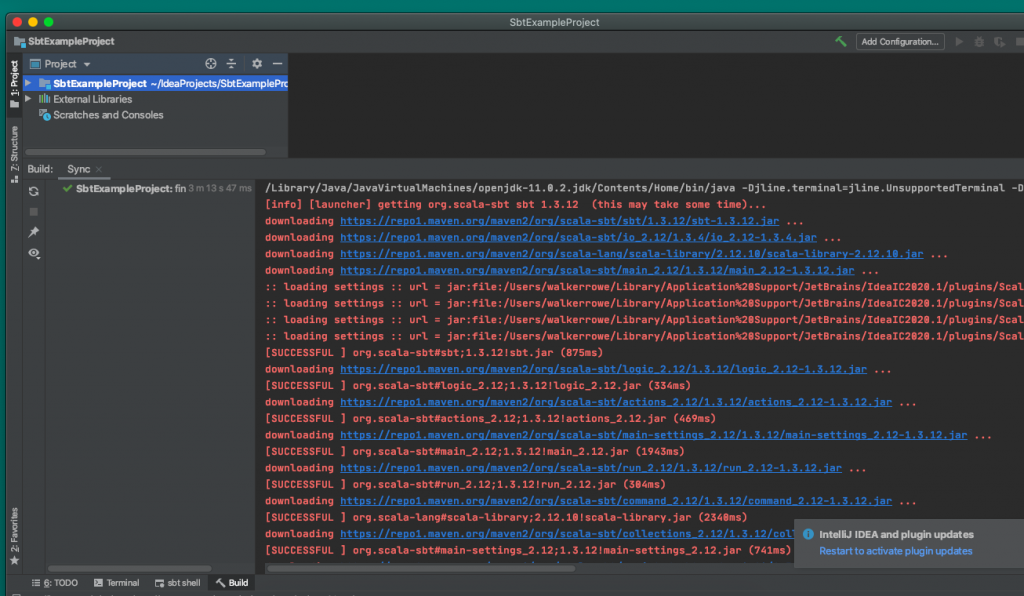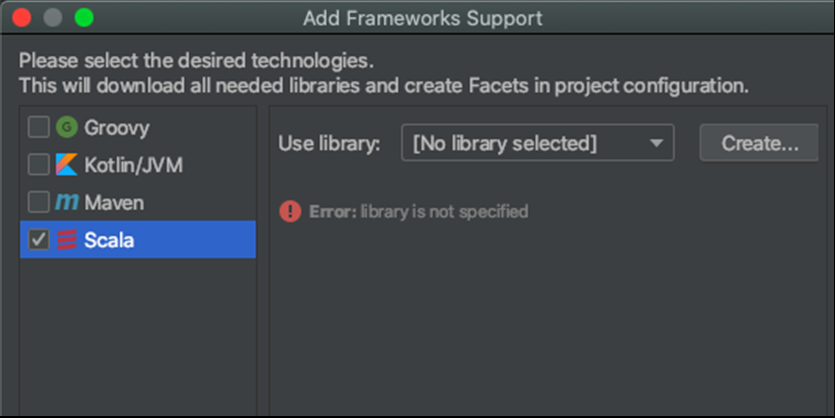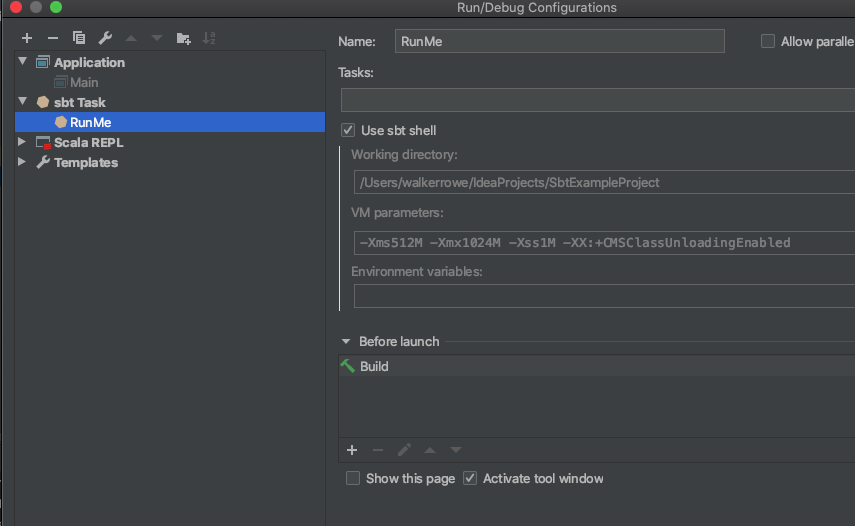This article is an expansion of How to Use Apache Ignite for Machine Learning. In this article, we’ll show how to code the same program, but using Scala instead. We focus on how to get Ignite Machine Learning in Scala.
The code for this example is here.
Use Intellij IDEA to convert code
By far the easiest way to convert the previous Java code to Scala is to use the Intellij IDEA, a Java-based IDE (integrated development environment). This lets you literally copy, line by line, the Java code into Intellij and it will convert the Java code to Scala for you.
You first install the Scala plugin to Intellij. If you’ve worked with Scala before, you know that it will take a while to set up SBT (Scala build tool) the first time.
Working in Scala
Next, create a Scala project.

Add the Ignite dependencies to build.sbt:
{
libraryDependencies ++= Seq(
"org.apache.ignite" % "ignite-core" % "2.8.1",
"org.apache.ignite" % "ignite-ml" % "2.8.1" )
}
Download the Scala SDK. For example:
wget https://downloads.lightbend.com/scala/2.13.2/scala-2.13.2.tgz
To create this simple linear regression example, right click on project and select Add Framework Support and the lib folder in the SDK you just downloaded.

Create a Scala class file, but change it to an Object, so that you can run it by just clicking the green arrow.
package com.bmc.ignite
import org.apache.ignite.Ignite
import org.apache.ignite.Ignition
import org.apache.ignite.configuration.IgniteConfiguration
import java.io.IOException
import java.util
import java.util.UUID
import org.apache.ignite.Ignite
import org.apache.ignite.IgniteCache
import org.apache.ignite.Ignition
import org.apache.ignite.cache.affinity.rendezvous.RendezvousAffinityFunction
import org.apache.ignite.configuration.CacheConfiguration
import org.apache.ignite.configuration.IgniteConfiguration
import org.apache.ignite.ml.dataset.feature.extractor.Vectorizer
import org.apache.ignite.ml.dataset.feature.extractor.impl.DummyVectorizer
import org.apache.ignite.ml.math.primitives.vector.Vector
import org.apache.ignite.ml.math.primitives.vector.VectorUtils
import org.apache.ignite.ml.regressions.linear.LinearRegressionLSQRTrainer
import org.apache.ignite.ml.regressions.linear.LinearRegressionModel
import org.apache.ignite.ml.selection.scoring.evaluator.Evaluator
import org.apache.ignite.ml.selection.scoring.metric.MetricName
object Main extends App {
val PersistencePath = "/Users/walkerrowe/Downloads/ignite"
val WalPath = "/Users/walkerrowe/Downloads/wal"
val config = new IgniteConfiguration()
val ignite = Ignition.start(config)
val dataCache = getCache(ignite)
dataCache.put(1, VectorUtils.of(1, 1.8))
dataCache.put(2, VectorUtils.of(2, 4.3))
dataCache.put(3, VectorUtils.of(3, 6.2))
dataCache.put(4, VectorUtils.of(4, 5))
dataCache.put(5, VectorUtils.of(5, 11))
dataCache.put(6, VectorUtils.of(6, 11))
dataCache.put(7, VectorUtils.of(7, 15))
println("data created")
val vectorizer = new DummyVectorizer[Integer]().labeled(Vectorizer.LabelCoordinate.FIRST)
val trainer = new LinearRegressionLSQRTrainer
val mdl = trainer.fit(ignite, dataCache, vectorizer)
val rmse = Evaluator.evaluate(dataCache, mdl, new DummyVectorizer[Integer]().labeled(Vectorizer.LabelCoordinate.FIRST), MetricName.RMSE)
print("rmse" + rmse)
System.out.println("intercept = " + mdl.getIntercept)
System.out.println("Weights = ")
val weights = mdl.getWeights
val w = weights.asArray
for (v <- w) {
System.out.println(v)
}
private def getCache(ignite: Ignite) = {
val cacheConfiguration = new CacheConfiguration[Integer, Vector]
cacheConfiguration.setName("ML_EXAMPLE_" + UUID.randomUUID)
cacheConfiguration.setAffinity(new RendezvousAffinityFunction(false, 10))
ignite.createCache(cacheConfiguration)
}
}
You also have to create an SBT build task in Intellij:

Now click the green arrow next to object Main Extends App {
This will start Apache Ignite and then run linear regression across the six data variables that we mocked. The program will output:
- Mean squared error (MSE)
- Intercept
- Coefficient (weights)
mse 0.5963051208050183 intercept = 0.5762626813570405 Weights = 0.4413657685174977
These postings are my own and do not necessarily represent BMC's position, strategies, or opinion.
See an error or have a suggestion? Please let us know by emailing [email protected].






